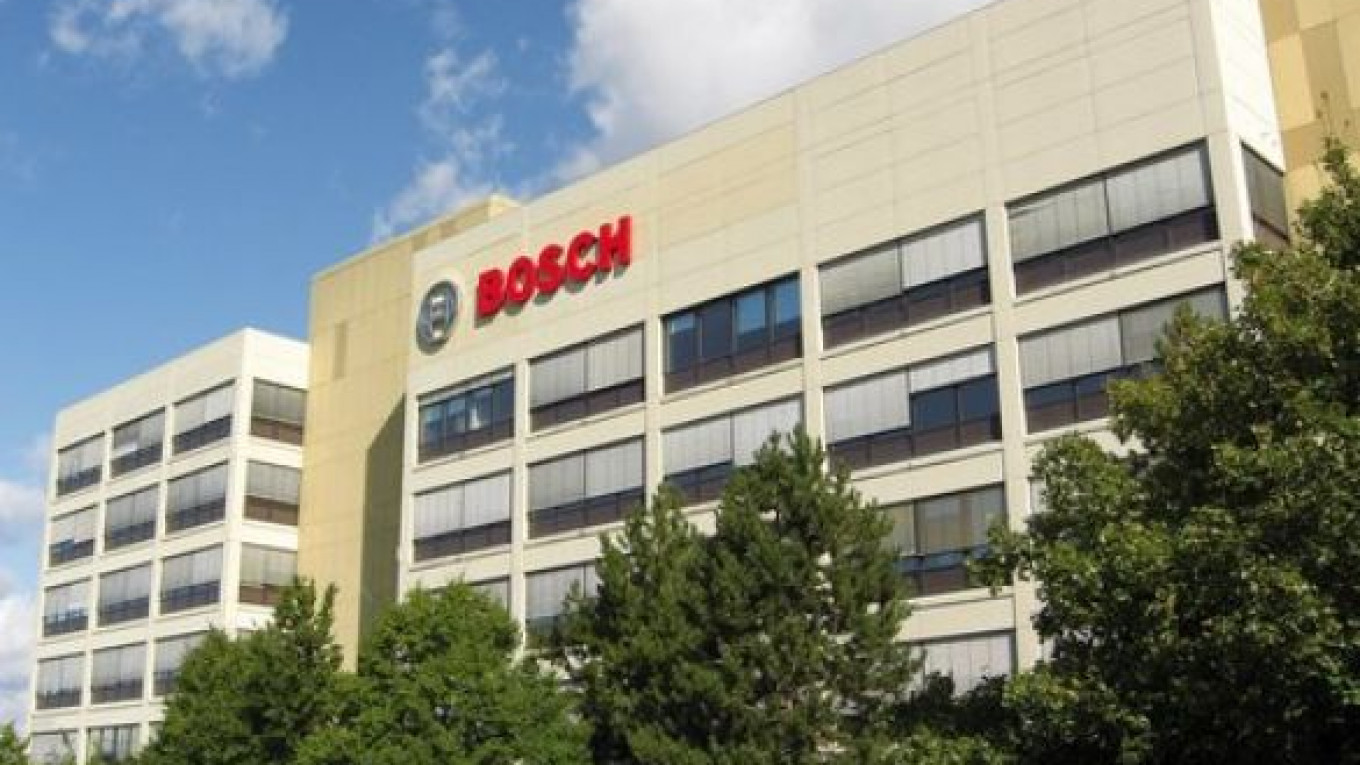Correction appended
German industrial group Bosch is betting on the auto market and large sporting events to expand its sales in Russia, its executives said Wednesday.
The appetite for new cars has decreased in recent months amid economic woes, but Walter Schoepf, Bosch's sales director for the region that includes Russia, said he hoped that the slowdown would not last long.
"We still hope that economic nervousness will calm down in the second half of the year," he said at a news conference.
Bosch plans to start building a 50 million euro ($64.5 million) plant in Samara to make automotive components for the companies that assemble motor vehicles in the country.
Russia ranked as the world's sixth largest market for cars and light commercial vehicles, such as small trucks and minivans, last year. Some analysts believe that it will overtake Germany as Europe's largest auto market in a few years.
As another major driver for growth, Gerhard Pfeifer, Bosch's chief for the region that includes Russia, named the "mega sports events" that the country is preparing to host. He apparently referred to the Winter Olympics in Sochi next year and the FIFA World Cup in a handful of cities in 2018.
Last year, Bosch supplied a number of infrastructure and sports facilities in Sochi and Kazan, which were built for the Olympics and the Universiade, respectively. The Universiade, an international multi-sport event for college students, is taking place later this year.
Bosch earned 1 billion euros in Russian sales last year, an increase of 2 percent over the previous year. It is a fraction of its 52.5 billion euros in revenue worldwide last year.
The year on year growth number for Russia is much bigger, 20 percent, if it excludes revenues from the five-year project to supply equipment to the Bolshoi Theater, with all of the money added to the company's 2011 bottom line.
The government's decision to delay the introduction of the Euro-4 requirement for motor fuel dampened equipment sales in the automotive segment, Pfeifer said.
The industrial giant invested about 75 million euros in developing its business in Russia last year, Pfeifer said. The company opened two warehouses, in Yekaterinburg and Novosibirsk, as part of an investment intended to shorten the lead time for its customers in the country's eastern expanses.
In addition, it continued building a second plant in Engels in the Saratov region, this time for the production of industrial and wall-mounted gas-fired boilers.
Pfeifer also reiterated that the company was on track to complete the construction of its main Russian office on Leningradskoye Shosse outside Moscow by the end of this year.
In an interview on the sidelines of the news conference, he described the 180-million-euro effort as one of the biggest things on his mind last year, saying it required attentive leadership and management.
Correction: The story incorrectly stated that the construction of Bosch's main office would cost 180 million euros. In fact, it is expected to cost 120 million euros.
Contact the author at [email protected]
A Message from The Moscow Times:
Dear readers,
We are facing unprecedented challenges. Russia's Prosecutor General's Office has designated The Moscow Times as an "undesirable" organization, criminalizing our work and putting our staff at risk of prosecution. This follows our earlier unjust labeling as a "foreign agent."
These actions are direct attempts to silence independent journalism in Russia. The authorities claim our work "discredits the decisions of the Russian leadership." We see things differently: we strive to provide accurate, unbiased reporting on Russia.
We, the journalists of The Moscow Times, refuse to be silenced. But to continue our work, we need your help.
Your support, no matter how small, makes a world of difference. If you can, please support us monthly starting from just $2. It's quick to set up, and every contribution makes a significant impact.
By supporting The Moscow Times, you're defending open, independent journalism in the face of repression. Thank you for standing with us.
Remind me later.






